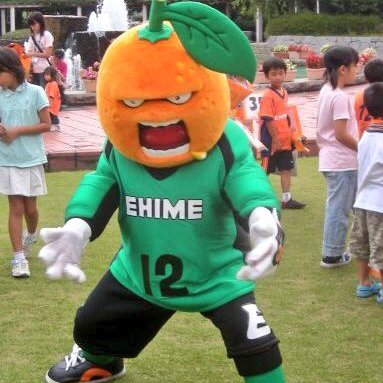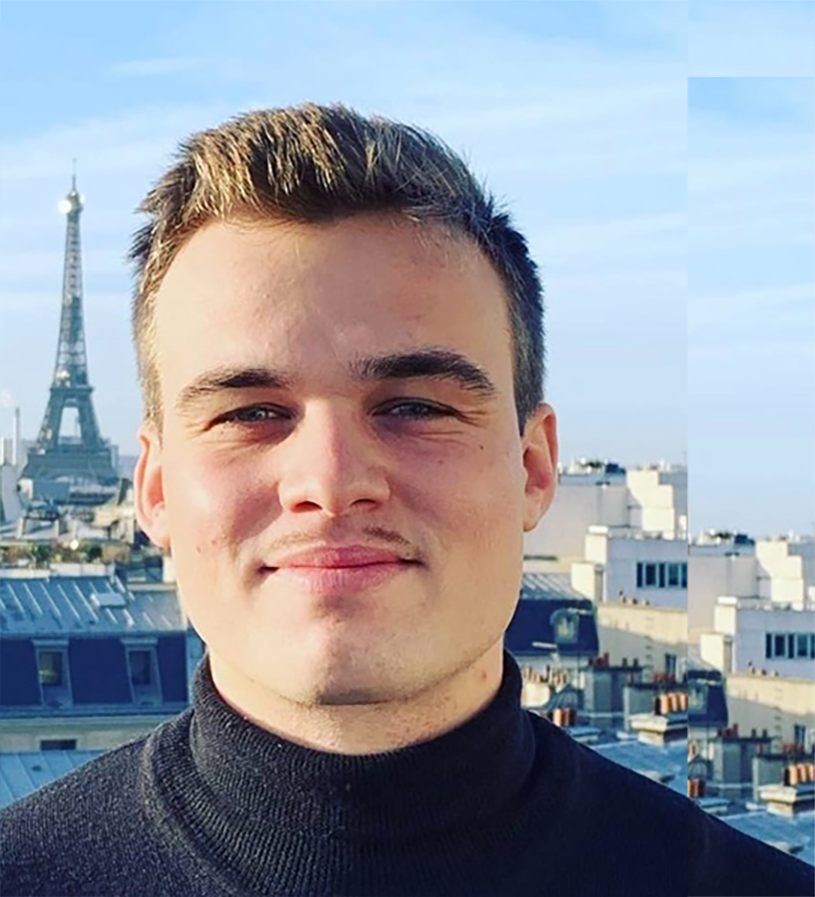Interview of Matsuyama - J-League specialist

This article is a transcript of an interview recorded on October 27, 2023.
Boris: I see that you have an impressive gallery. I rarely speak to managers with a gallery of $2,000 and try to reach out to more significant managers. I discovered your Twitter account pretty recently; I don’t remember exactly how.
Matsuyama: I am pretty focused on J-League, maybe because of that, even if I play everything. I am from England originally so I probably know more about European football, but because I am living in Japan, it’s a good excuse to watch the games.
Boris: It seems you have played other games. My first question is, can you please present yourself, explain who you are, share what you want to share, and explain how you discovered Sorare?
Matsuyama: That’s fine. I am Matsuyama. I am based in Japan, but I am originally from England. I discovered Sorare in 2020, mainly because I have been in crypto for a while. I have been involved in different projects, and I have been playing fantasy sports for years, so I just doubled with it a little bit because when I started, Sorare was just proposing the Belgian league. I asked myself, "Who is gonna pay this amount of money for a random goalkeeper?”. I was not deep into it straight away, but I like to diversify, and I like the community. If you are in the crypto space, you will notice that many projects are just hype, hype, and hype. And one thing I loved about Sorare at that time was that it was not. It was about good energy and people actually giving advice. That’s when I first got involved.
I just slowly built up my gallery as such and started to get involved in different leagues. I just liked any kind of strategy games I guess, where you have got to look at where there is a hedge to be added. I looked at Sorare, and I saw that everyone was just going for the big players in the big clubs and the big leagues, so I said, “Let me look at something else.” I was based in London back then, even if I knew I would move to Japan. My wife is Japanese, and I knew about the J-League. I went so profound about the J-League when I decided to move here. I built my gallery around J-League. I just ended up having knowledge and looking anywhere I can get compound growth, really. So that’s generally how I started.
When I look at any project, I am looking at how the users play and whether that makes sense to me. And that’s what I liked about Sorare as well. It’s a cliché, I know, but it is based on scarcity. Users were increasing, and I was not sure that it might not disappear overnight, but at the same time, I was happy to increase my exposure slowly, and I also knew that I could win. That was back when Ethereum was so low. I remember thinking, “Is Sorare going to keep up with the Ethereum growth or not?”. I liked to take a balanced approach between the two. But the main thing was it was producing quantifiable results, and secondly, it’s football. I love football.
Boris: I am scrolling through your transaction records, and there are many. I wanted to know, when you arrived on Sorare, you yielded good rewards in football; when you arrived in October, I was there as well; how was your budget strategy?
Matsuyama: I found out about it through a friend that I play fantasy football with. He was getting involved, and he knew I was into crypto. I was skeptical, but we joined together, which is a positive thing because we can joke together, find things, and share them. My strategy in terms of budgeting was relatively loose. I already had my Ethereum, so I was trying to find out how much to put in. I put my Ethereum into various projects at the same time, and then I looked right from the start at how much it cost to build a team and also what were the rewards. Then, I checked the number of users. I wanted to analyze it and continue to review it very loosely in a few weeks or so. Also, I was learning about the different leagues and the communities. I decided quite quickly that the highest scarcity was better simply because of less competition. But even then, I have never done an all-in and all-out. It was slowly building up and learning, keeping a budget, and deciding on each position.
First card

Matsuyama: I was just testing the system. I had no idea. Now he is playing for Japan. It was 1 euro. I just clicked it to see what was happening.
I forgot the name of my first goalkeeper, a 38 or 39-year-old Belgian goalkeeper. I was asking myself: “How can that become popular if the entry point is so much?”. Very quickly, we started looking at Lazio players, like Immobile, and discussing well-known players, but people say they are too old. Lazio was not doing great, but I could see value in it. So, I was building with that approach and talking with my friend about it.
Boris: When you started, there were not many leagues. What was your approach regarding the divisions? Were you trying to compete for rewards, or were you trying to test the game?
Matsuyama: I wanted to beat my friend first and then to get rewards. Just to get an understanding of it. I went for the J-League a few months later because I knew I was going to Japan. I remember looking at SorareData and realizing there were more rewards than users entering Asia then, especially the D2 Super Rare. I knew I could get information, so I concentrated on that. I was using an approach where I was not putting too much. I realized I could get a very good hedge in that area, so I concentrated. Quickly, I also won in Champion Europe, and I realized the rewards were so good that I could sell the rewards and then get other players. Not always. My first players were to compound and get as many rewards as possible. I went for quality and quantity. A bit of a mix.
Boris: Then, new clubs were coming, so I guess you adapted your strategy and your gallery to accommodate the new additions of clubs and leagues.
Matsuyama: Exactly. I did not want to buy straight Bundesliga because people were going crazy, and I think there was also that crypto FOMO.
Boris: There were mainly people from crypto on Sorare at that time.
Matsuyama: People were taking more risk than me.
Boris: The game was so new that the potential benefits were pretty huge. I remember that it was an excellent time to buy and sell.
How was your first strategy? Was it all about buy-and-sell, or were you more competitive for rewards?
Matsuyama: 80% rewards and 20% trading. I quickly realized that the market would continue increasing, and I became more confident over time. Even though I wanted to sell, I did not want to sell things that could bring me more. That was just a loose estimate I was taking at that time. I was planning ahead for a few months and buying when people were selling. I always try to do the opposite and have a balanced approach. I remember my mate; he had no knowledge of crypto and was struggling with Metamask. I advised him to “buy more crypto,” he said, “I don’t understand, oh…”. It was very crypto-focused.
Boris: How long were you able to project? It depends on the person. Some people can project more than others. Did you know that in 2020, you would still be here in 2023?
Matsuyama: I did not even think more than three months ahead. I think I am constantly reviewing how comfortable I am. That’s not just with Sorare; it’s like with any project. Sorare made sense, so I was happy to go with it. Six months later, probably in early 2021, I became more confident. I saw they were getting so many leagues and understood the potential. So yeah, it changed over time.
Boris: How were the scarcities ranked in your mind?
Matsuyama: It was first Rare and then Super Rare. Limited, I think I bought mainly for giveaways. When I saw the numbers, I was not the biggest fan of the Limited cards but I understood that it was making sense to make the game more accessible.
The best rewards for the cheapest amount and then compounding it.
Boris: Speaking about the divisions, have you wanted to play all the divisions since the beginning?
Matsuyama: When I started, I quickly realized I was playing too many divisions and over-stretching myself. I was looking at the maximum reward I could get and trying not to look at just getting a reward because it’s about “if everything goes right, what is the maximum reward I can get?”. Even now, it sounds ridiculous; one really big reward can be better than 20 or 30 rewards. I want to do Champion Europe because I found this little combination that worked then and was winning a lot. I have done also Challenger and All-Star. I wanted to look at if my player is gonna play. Because I got some DNPs, I quickly started looking after key players.
Boris: What is your focus now?
Matsuyama: I don’t win as many rewards in Asia as over Champion Europe. But I will use Asian cards in All-Star, for example. I would go for All-Star Rare Pro first, then All-Star sometimes, and then look at Champion Europe. It will depend on the situation. So especially now, because the value of Asian cards is not high, of course, we can still use this card to win a European card in All-Star Rare Pro, for example. It has become much more difficult now than when I started, but that’s my strategy. And I am changing each game week. Because I have so many cards, I have become relaxed about it. Before I was preparing much more because I had gaps, so it took me much longer to scout and find what I wanted.
Boris: And now there is also SorareData's lineup builder, which gives you a good idea of your lineups' strengths and weaknesses. I don’t know if you use it, but if you see the lineup strength, it is a good indicator to follow.
Matsuyama: It is interesting. I actively don’t use it because I know most people do. So, I have my way of doing it. Now, I have a lot of connections with different areas, so I can have good information. But it is good.
I would also say it is always good to do your lineups as close to deadlines as possible and then stick to them. The main thing is: “Is a player going to play or not?” I like to do it slightly differently from SorareData. In Asia, a lot of times, the lineups are completely inaccurate, so I have my own approach to it.
General
Matsuyama: The first thing I tell people is to check the goalkeeper and defender stack.
Boris: Now, I wanted to speak about your selling strategy because you have traded many cards. What were the first cards that you sold, and why?
Matsuyama: I can’t even remember, but it will be: “Will I use this card in the near future?” and then secondly: “What is the plan for the ETH I get from the sale?”. I was not looking to flip so many cards at that time. Sometimes, I will. But I want to sell, especially when I feel the hype is getting more; I will sell many cards before the season starts and into a new season. So now, I will do the opposite; I am telling people on Discord or my Patreon which player to buy because the risk vs reward is better.
And selling, you know, it’s not pointless; each individual situation is different, but for me, into the hype I sell and when others are not paying attention.
People should do their research, but certain players are cheap. People assume that Asia is riskier, which is why it’s cheaper. You can trade as well.
The goalkeepers are the cards that any new users are looking for. You can do more research in the J-League and Mexican leagues, where people are confused about the language. It is a matter of cycles. When the leagues start, sentiments change: “Ohh, the leagues are starting again; I need to buy.” I look at that in terms of card prices and risk vs. rewards.
Boris: Regarding trades, as you were saying, I think I don’t say it enough on Twitter. It is simple advice, but not enough people follow it. If you want to trade, “buy when the season is ending and sell when the season is starting.” It can sound stupid. The bigger the budget, the bigger the potential returns.
Matsuyama: I am making a mistake and not selling enough for a loss. It is okay to sell for a loss. Everyone is making mistakes. I don’t want sitting on players expecting them to return or expect them to return. Of course, I don’t want to make a loss in the long-term, but in individual cases, just get rid and use this money and buy again and trade again. I do think Rares is good at the moment. Not just Asia but America also. I like to look at the calendar and try to predict. For example, at Christmas time, people started selling more. It is possible sometimes to figure out trends. There are a lot of different approaches. I try to see if people are overselling or not. If yes, then I buy. I think goalkeepers are really good. I know it’s a classic “buy a second keeper,” but there are spots where it is really good.
Boris: How do you decide if you want to keep cards, and how do you decide the duration you hold?
I am asking you this mainly for the young academy prospects because I like to buy cards for 16, 17, 18, 19, and 20 players. I like to use a combination of their contract duration in real life, actual transfers, and price alerts on Sorare. I like to assess their situation twice a year, during each transfer window, and make decisions only two times because I don’t want to use my time managing my gallery weekly.
Matsuyama: I like that approach. I am fortunate the teams I support are not on Sorare. If the team I support were on Sorare, then it’s sure I would never sell. I think the transfer window is a good way to do it. People are overthinking. The Saudi League is a perfect example. We can’t really predict it.
If certain players perform for me, but I see in real life they are rubbish, and I might sell those.
I like to balance and not have any rules.
The big thing I noticed people forget is that 5% of XP is lost every year, whatever the league. I check which players are going to lose 5% because I will also decide based on that. If the league is going to end and someone is buying a 7% XP player, they are buying a 2% XP player. And people forget that.
That’s my general thinking of it.
Boris: How many cards do you want full XP?
Matsuyama: It’s not about full XP. The collection makes it difficult. I want to have 8% +.
It can happen that if a player has hit Level 20, “you are with me for life.”
With the collection, I want to get 10% + as quickly as possible. 14% is excellent.
The main area is looking for that hedge, and for me, it is collecting now, buying off-season, and selling into hype.
Boris: That’s pretty clear. Thanks. I had other questions, but maybe they will be for another time. I am always interested in collaborating, so for Asia content, let’s keep in touch. I want to contact you and Javeer at some point if you are available.
Matsuyama: Yes, yes. I will meet him next week.
HoF SO5
To be completed.
To read next on SorareInfo:
Interview of ZardesFanClub - From Thresholds to Podiums
Use the code "SorareInfo" to support us. We receive 10% of your first payment.

Use our affiliation link to support us. Once you make your first payment we will receive 20% commission on the price that was paid. We will also receive a 10% recurring commission on all future payments.

